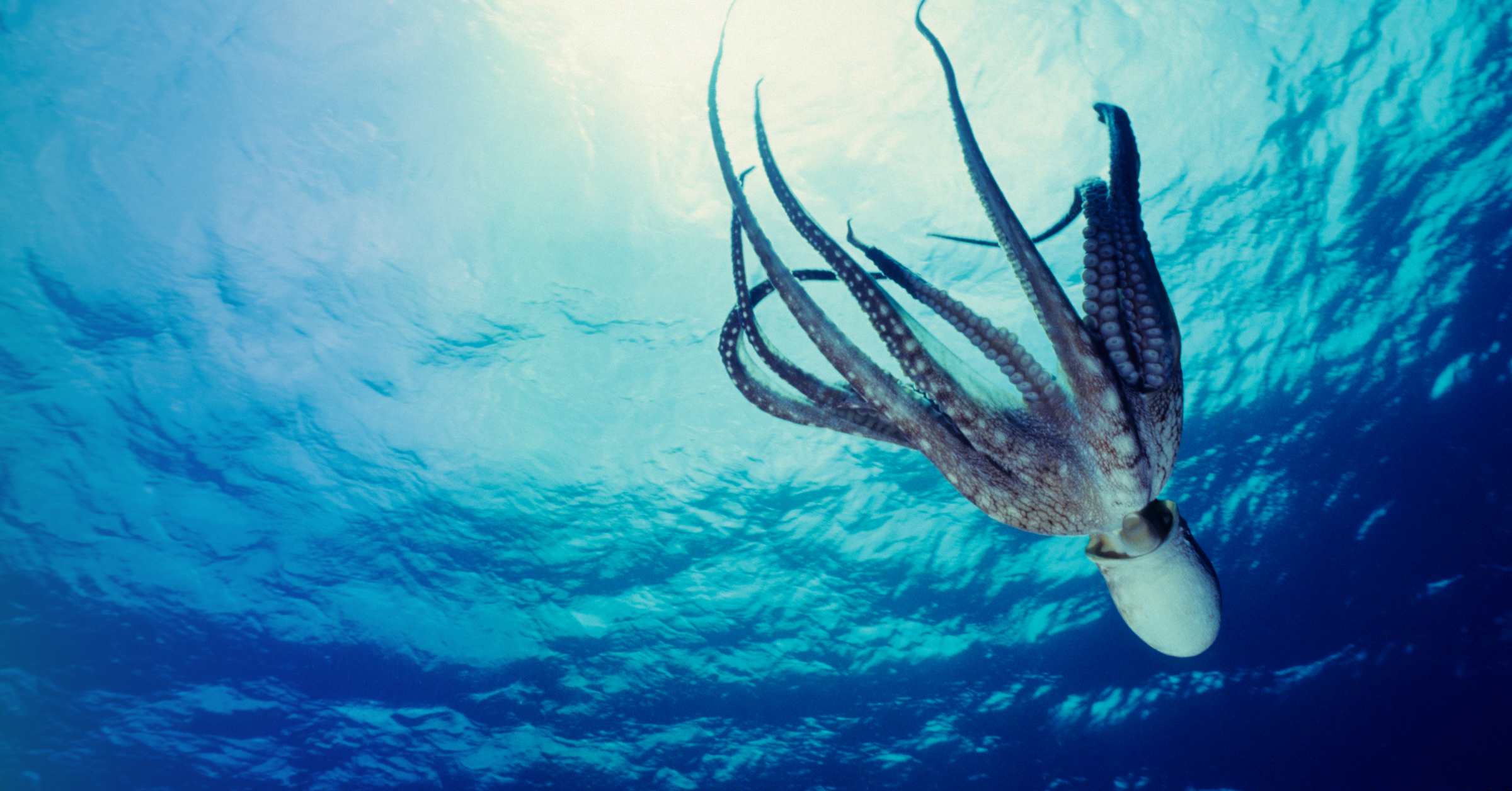
Cephalopods – or octopuses, squids, cuttlefish, and nautiluses – are sentient, “smart and sensitive” aquatic beings, who researchers themselves have likened to dogs.
Yet, in another showing of the animal research industry’s true nature, animal researchers continue to increase their victimization of these “big, wet, strong pupp[ies]”.
U.S. law does not recognize cephalopods as “animals” because they are invertebrates.
Cephalopods fall into the 95-99% of other-than-human research subjects who are denied any legal protection by the Animal Welfare Act, which limits coverage to only certain vertebrate animals.
Cephalopods are also excluded from other “use considerations” made by the research community, such as the guidance promulgated by the NIH, the largest funder of animal research worldwide.
Researchers “do whatever” they want to cephalopods . . . and they want to keep it that way.
Though researchers’ fixation on backbones is nothing more than another superficial veil for species discrimination, it (like the others) serves their professional interests and is, therefore, hotly defended. As researchers themselves explain:
“‘If you were in a research setting, and you wanted to buy some octopuses and do whatever you wanted to do with them, there is no regulatory oversight to stop you’….” (Read more here.)
“‘[Researchers] “play[]” with these animals and receiv[e] funding for giving lip-service to claims that this is to further scientific progress that will eventually make humans lives better,’….” (Read more here.)
Doing “whatever” to these beings couldn’t be uglier:
Researchers crush cephalopods’ arms and, then, apply electrodes “‘to the arm stumps”.
The animals “‘cradle[] the wound areas or curl[] other arms around them’” and “show[] immediate wound-grooming behavior, where the arm stump or crushed site [is] held in the beak.”
Researchers inject cephalopods’ arms with acid.
The animals “stroke[] the wound with their beaks” and try to “avoid[]” the “chamber” in which they were hurt.
Researchers go on and on, but we won’t here.

Researchers must be stopped from hurting any animals, including cephalopods.
In June of 2020, Rise for Animals, with Harvard Law School’s Animal Law and Policy Clinic, led a coalition in a petition for rulemaking to the NIH. This petition urged the NIH to include cephalopods as animals deserving of humane treatment in laboratories. The NIH responded that they were “currently considering options for providing guidance on humane care and use of invertebrates in NIH funded research” — but it took them until September of 2023 to take any related action.
At that time, the NIH asked for feedback about cephalopods, specifically with regard to their inclusion in NIH guidelines applicable to grant-funded research facilities. While we support the formal recognition that cephalopods are “animals”, we know that these guidelines (as “welfare protections”, at best) “will not spare cephalopods from exploitation and abuse”.
We know that the answer is not in how we use other-than-human animals; it’s in not using them at all.
And, we’ve, once again, expressed this to the NIH.
We will continue fighting to afford all puppies (be they of the land or sea) protection from human harm, but both we and they need your help.
While we continue to pursue an end to the exploitation of all other-than-human animals subjected to experimentation, researchers should — at the very least — be required to acknowledge the sentience of those they exploit. Please urge the NIH to amend its policies and recognize that cephalopods are thinking, feeling beings.